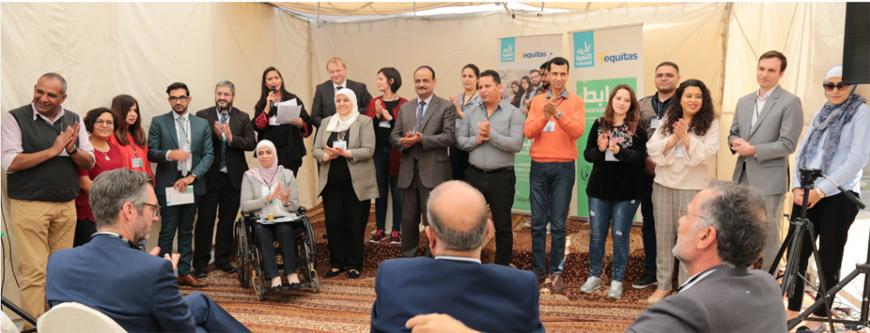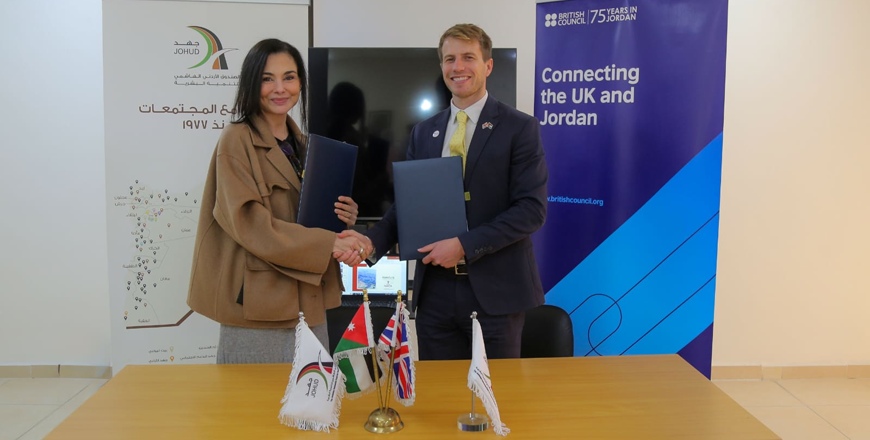You are here
Regional initiative seeks to engage young people in decision making
By Laila Azzeh - Apr 16,2016 - Last updated at Apr 16,2016
AMMAN — After three years of persistence to equip young Arabs to overcome challenges in their regions based on a human rights approach, the first phase of the EU-funded Mosharaka (participation) project came to an end.
The programme, which focuses on young people in marginalised and underprivileged communities in Jordan, Egypt, Tunisia, Yemen and Morocco, is implemented by Equitas, a Canada-based international centre for human rights education.
The centre is a non-profit organisation that works for the advancement of equality, social justice and respect for human dignity in Canada and around the world through human rights education programmes.
The second stage of Mosharaka will focus on broader youth-serving mechanisms that engage young people with decision makers.
“In the coming phase, youths will be provided with more tools to be engaged with decision makers, set up meetings and develop strategies for meeting with local authorities, and addressing their messages to be more solution-oriented rather than confrontational,” Equitas Executive Director Ian Hamilton told The Jordan Times in a recent interview.
He added that the use of technology to create a greater impact will also be the focus of the coming phase.
“We want youths to engage with decision makers and their community leaders to find solutions for their issues, whether around their own participation, employment, violence or discrimination against women,” said Hamilton.
Equitas representatives were on a recent visit to Jordan to meet with officials and share lessons learnt from Mosharaka.
They met with the government’s coordinator on human rights, Basil Tarawneh, and Deputy Prime Minister and Education Minister Mohammad Thneibat.
Talks covered the government’s action plan on the 2016-2020 human rights strategy and possibilities for cooperation to benefit from Mosharaka’s good practices, according to Hamilton.
During its first phase, the initiative managed to reach out to 16,675 people through 20 human rights projects, while 173 youth leaders from the benefiting countries have been able to engage 1,661 young people, half of whom are women, according to Nadjet Bouda, Equitas MENA programme officer.
Last Thursday, Equitas and its regional partners presented the results of Mosharaka, launching a new tool to support the implementation of youth projects.
The publication, “Youth Participating in Community Life — Implementing Human Rights Projects in the Middle East and North Africa”, shows the lessons learned and good practices of the Mosharaka project,
“Our experience in the region showed that there was a lack of user-friendly tools to help young people, decision makers and civil society representatives work together to implement youth civic action,” said Hamilton.
“Based on the promising outcomes of the Mosharaka youth initiatives, this publication demonstrates that youth in the MENA region have the capacity and the desire to contribute to the development of their communities,” he added.
Asked about the ability of initiatives like Mosharaka to effect change in light of rising extremism, he noted that “human rights education is an antidote to that kind of appeal to extremist group”.
“Knowing about your rights is important in building self-esteem and sense of identity…giving youth the opportunity to contribute something to their communities and be part of positive change build their sense of connectedness and build their sense of empowerment.”
The Equitas executive director cited the “critical reflection” approach Mosharaka has adopted as the key to succeeding, as it challenges people to think about what is happening and what should be done to deconstruct the propaganda and appeal of extremist groups.
Related Articles
Oussama Ferchichi’s passion for civil change is influencing his brother to stay clean from drug use.
AMMAN — Over 1,500 youth, women and people with disabilities are set to learn how to use new technologies which will help them participate m
AMMAN — The Jordan Hashemite Fund for Human Development (JOHUD) and the British Council on Monday signed an agreement within the framework o


















